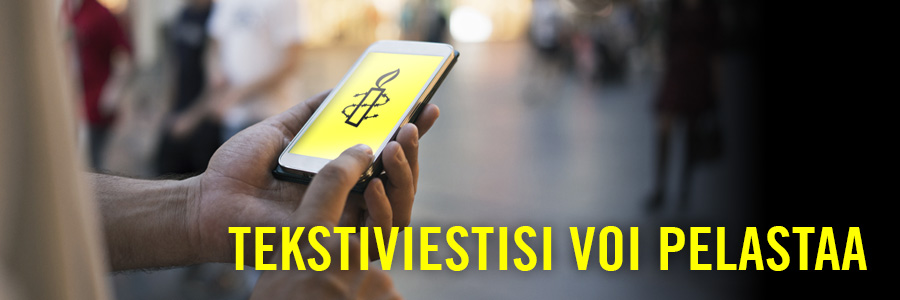Dear Prime Minister,
I urge you to immediately halt the execution of Tangaraju s/o Suppiah, set to take place on 26 April 2023. His death sentence was imposed in violation of international human rights law and standards, which would render his execution unlawful and arbitrary.
As you will be aware, international law and standards set out restrictions on the use of the death penalty to protect against the arbitrary deprivation of life. These include the prohibition against imposing this punishment as a mandatory sentence; for offences that do not meet the threshold of the “most serious crimes” involving intentional killing; after proceedings that do not meet the highest standards for a fair trial; and only when the guilt of the person charged is based upon clear and convincing evidence leaving no room for an alternative explanation of the facts. Violations of all these safeguards appear present in this case.
The Singapore government must take steps to reform the death penalty, instead of pursuing further executions. Singapore is one of four countries known to have carried out executions for drug-related offences in recent years. Due to the country’s highly repressive drug control law, judges are not allowed to take into consideration possible mitigating circumstances at sentencing, including circumstances of the crime, background of the defendant or other factors relevant to the case. Unfortunately, Singapore’s highly punitive drug policies have failed not only to tackle the use and availability of drugs in the country, but also to offer effective protection from drug-related harm.
I urge you to immediately halt Tangaraju s/o Suppiah’s scheduled execution, commute his sentence and establish an official moratorium on all executions as first step towards full abolition of the death penalty.
Taustatietoa
Singapore national Tangaraju s/o Suppiah is facing execution on Wednesday 26 April 2023. Suppiah was sentenced to the mandatory death penalty in 2018 for assisting in the trafficking of 1017g of cannabis into Singapore in 2013.
Tangaraju, 46, was accused of coordinating with two men to traffic cannabis in September 2013, but never received the drugs allegedly ordered by him. His conviction is mainly based on statements that he gave during police interrogation, with no lawyer nor interpreter present; and on the testimony of his two co-accused, who appeared as prosecution witnesses and who linked him to a mobile phone number that he said he had lost before the offence took place. One of the co-accused later had his charges dismissed. Additionally, the prosecution failed to locate a fourth man, who the judges deemed to be material to corroborate this witness’ statement; and to disclose to the defence the statements made by the co-accused, as well as the phone records in question. The trial and appeal judges considered all grounds raised by the defence, including on inconsistencies among the statements put forward by the prosecution, but dismissed them. In countries that have not yet abolished this punishment, international safeguards require that the death penalty be imposed only when the guilt of the person charged is based upon clear and convincing evidence leaving no room for an alternative explanation of the facts; and after a legal process which gives all possible safeguards to ensure a fair trial, at least equal to those contained in article 14 of the International Covenant on Civil and Political Rights, including the right of anyone suspected of or charged with a crime for which capital punishment may be imposed to adequate legal assistance at all stages of the proceedings.
International law and standards prohibit the imposition of mandatory death sentences as these deny judges the possibility of taking into account the mitigating circumstances in the case. Moreover, international law and standards require that the imposition of the death penalty be restricted to the “most serious crimes” involving intentional killing. Of additional concern remains the possible reliance by the prosecution on legal presumptions under Singapore’s Misuse of Drugs Act, meaning that any person who is proved to have in their possession certain amounts of prohibited substances can be presumed to have knowledge of the substance contained in the package and its quantity, and to have had that drug in their possession for the purpose of trafficking, unless they can prove differently, in contravention of the right to the presumption of innocence. After Tangaraju s/o Suppiah was found by the judge to have been involved in the trafficking of more than 1kg of cannabis, he was presumed to have intent to traffic the substance based on its quantity.
Following amendments to the Misuse of Drugs Act effective from 2013, judges in Singapore have some sentencing discretion in cases where the role of the defendant was limited to transporting drugs (“courier”) provided that the public prosecutor issue a certificate of substantive assistance with the authorities, or defendants are found to have mental or intellectual disabilities that substantially impaired their mental responsibility for their acts and omissions in relation to the offence. Alarmingly, if the prosecution does not provide a certificate of assistance after a defendant is found to be a “courier”, the court is deprived of any discretionary powers and must sentence the accused to death, shifting the sentencing decision in practice to the prosecution.
The last known execution in Singapore was carried out in October 2022.
Amnesty International opposes the death penalty in all cases without exception. As of today, 112 countries have abolished the death penalty for all crimes and more than two-thirds are abolitionist in law or practice.


